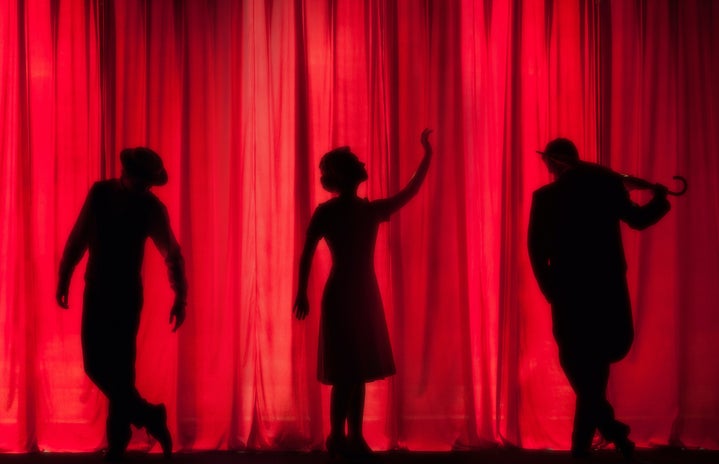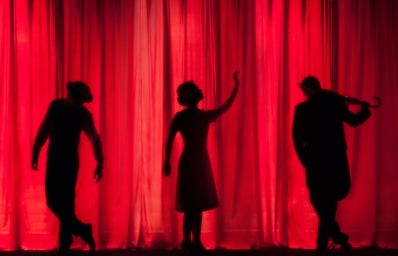What best describes me? Spartan? Journalist? Dedicated student? No, Mamma Mia! devotee. I recently saw the national tour of Mamma Mia! At The Wharton Center at MSU. Obviously, it was amazing, there’s a reason that this has been a phenomenon since it opened in 1999, it’s ABBA and girl power, a match made in heaven. Like any stage-to-screen adaptation, there are numerous differences between the production and the 2008 blockbuster film.
I was really deep into musical theater Tumblr blogs when I was a teenager, and therefore entrenched in discourse about movie adaptations of Broadway musicals. Seeing the source musical of one of my favorite movies of all time made me think about what makes each medium better. So, who wins?
Points for the stage: quality over quantity
Without naming any names, some movie musicals have been jaded by the fact that they cast some big names who just… can’t sing. In pulling big names for their blockbuster, some movie adaptations lose the quality of their performances, something that certainly isn’t a problem in any of the touring productions I’ve seen. The live performances given on the stage are truly beautiful, and bring more beauty and emotion to the story than many movies can.
Points for the screen: Big emotional beats
I’ve seen most live productions from the back row, which, despite how grand the performances are, sometimes things don’t hit the way they do on the big screen. In the movie Mamma Mia!, two of the most emotional numbers are “Slipping Through My Fingers” and “The Winner Takes It All.” The scenes on stage and screen are relatively the same, Donna and her daughter Sophie reflect on the cruel passage of their time together as family, then Donna tells off her ex-lover for leaving her alone all those years ago. Despite how fantastic the numbers were on stage; those beats can’t compare to the movie. Little can compare to the melancholy montage of Meryl Streep and Amanda Seyfriedflipping through old photos, preparing for a wedding that symbolizes the end of Sophie’s girlhood and a new phase in their mother-daughter relationship. Every version of “The Winner Takes It All,” from the original ABBA version to the stage show, is Absolutely. Jaw. Dropping. Still, in the movie, the orchestral climax of the song is emphasized by Streep running up a Grecian cliff at sunset as the wind blows her hair and scarf wild. That’s movie magic, babe.
Points for the stage: New, exciting experiences
Movies are the same exact thing every single time. Aside from the fact that most movie musicals have small adjustments from their stage counterparts, oftentimes the musical will vary from production to production. I have (allegedly) seen many bootlegs of the stage productions of long-running shows, and the little changes made to costumes or a few lines of dialogue keeps it fresh and even more entertaining. Seeing how a company adapts and expands on a piece of media that you adore can make you remember why you loved it in the first place.
Points for the screen: New takes that keep giving
On the other side of that coin, seeing the same movie musical over and over again can continue to be entertaining if the movie makes choices that improve upon the source material. One criticism I hear a lot about jukebox musicals like Mamma Mia! Is that the writers are focused on shoehorning as many songs into the show as possible at the expense of the plot. At points on the stage, the start of another ABBA hit sometimes felt like it was interrupting the plot and disrupting the drama. The movie takes out a few numbers, and the plot is stronger for it. The 2018 sequel, Mamma Mia! Here We Go Again explores with more depth the plot brought up in the original, further expanding on Donna’s tumultuous relationship with Sam and her fears of raising a baby on her own in the 1970s that were just brushed on before. The sequel refines the themes of lost love, motherhood, and female independence in a way that the original stage production just doesn’t have the runtime to do. And many of my fellow Phantom of the Opera fans know that sequels on the stage just aren’t the best idea.
The best way to determine if a movie musical or stage production is better is what you’re looking for in your entertainment. My time seeing Mamma Mia! At The Wharton Center was absolutely phenomenal, so much so that I need to see the 2008 movie again (and the 2018 sequel! A fantastic franchise from beginning to end). There is a time and place for both. For Mamma Mia!, the stage musical is more for an afternoon out with the ladies, whereas the movie is more for a wine night with the girls. Both are valuable and though there are some strange musicals and some dud movie musicals, it’s time to stop pitting two queens against each other.


